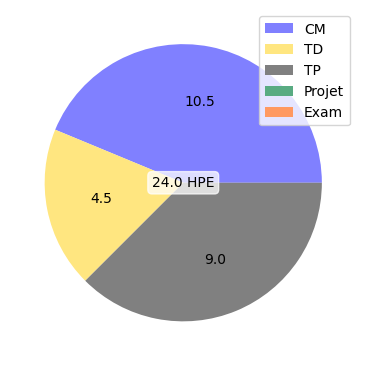Méthodes Numériques 1
Numerical Methods for the Discretization of Physical Equations
Description: This course introduces the mathematical and algorithmic concepts for the discretization of ordinary differential equations (ODEs) and partial differential equations (PDEs) arising in the modeling of linear and nonlinear problems. For ODEs, the focus will be on Runge-Kutta methods with fixed and variable step sizes, as well as multi-step methods. For PDEs, emphasis will be placed on the finite difference method to approximate partial differential equations commonly encountered in physics, particularly parabolic and hyperbolic types. For this latter category, the course will cover explicit and implicit schemes, as well as the notions of consistency, stability, and convergence of numerical schemes. A significant practical component will allow students to implement and apply the numerical methods presented in lectures on computers for the analysis of physical phenomena or systems.
Bibliography:
- Ref. [1] : R. H. Landau, M. J. Páez, C. C. Bordeianu, Computational Physics: Problem Solving with Python, Wiley-VCH, 3rd Ed, 2015
- Ref. [2] : K. W. Morton, D. F. Mayers, Numerical Solution of Partial Differential Equations. An Introduction, Cambridge University Press, 2012
Learning outcomes: At the end of this course, students will be able to: AA1: Numerically simulate (using Matlab/Python) an ordinary differential equation (ODE) or a partial differential equation (PDE) using appropriate algorithms. – AA2: Analyze the stability properties of numerical schemes for simulating ODEs and PDEs. – AA3: Select the appropriate numerical simulation scheme based on the physical problem to be solved.
Evaluation methods: Labwork report
Evaluated skills:
- Physical Modeling
Course supervisor: Mehdi Adrien Ayouz
Geode ID: SPM-MAT-005
